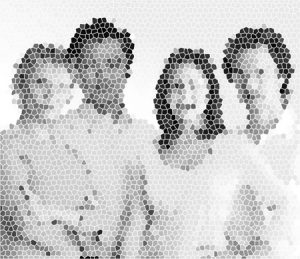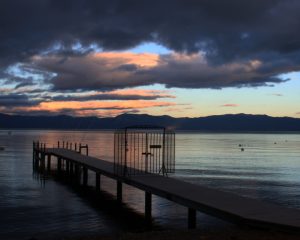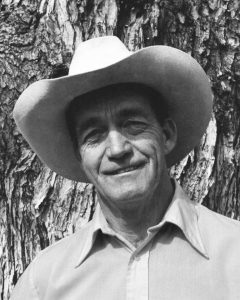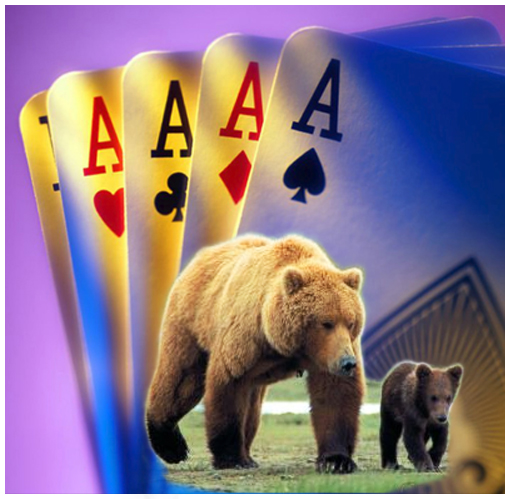 Every major change in life — and probably a lot of the minor ones — is accompanied by something I call Turbulence.
Every major change in life — and probably a lot of the minor ones — is accompanied by something I call Turbulence.
New job, turbulence. New baby, turbulence. Loss of a loved one, MAJOR turbulence.
It’s that period of discomfort and confusion that happens between one steady life state and another. Eventually you get used to new conditions of life — the new job is as familiar and comfortable as the old one — but meanwhile, you suffer the bumpy ride of the necessary transition.
I bring up Turbulence because I think we’re in it, society-wide, worldwide, right now. I suppose the people of every era feel their discomforts, but this one is a one-of-a-kind, first-ever-in-history discomfort, the sign of a BIG transition.
I’m thinking about Humanity on Planet Earth, and the changes in store for us, major ones, some of which are already taking place. What will be the end result of those changes? Where are we going?
Up til now it’s like we’ve been living through the human species’ childhood, where we could explore and play and fight and kill and burn and break and do pretty much anything we pleased, without any very serious repercussions. We could reproduce without limit, experiment with weird beliefs, exotic ways of living, silly fantastic ideas, and see what happened. All the while, we were rich enough in room and resources that our failures made only local differences. We could try out this thing and that thing and the other thing, and no matter how much we broke or burned, we could just walk away from the wreckage and try something new.
But there’s that time to come when we won’t be doing that stuff anymore. The time when we will practice restraint and finally become grownups, comfortable with ourselves and with life on Earth, living more or less gracefully and successfully, into the indefinite future.
I don’t say we’re GOING to make it. But if we do, it will be because we did this other thing, and so became able to survive. It’s like our doctor has said “Your heart is laboring, your liver is shot, your cholesterol if through the roof and your diabetes is getting worse. You’re going to lose 100 pounds or you’re going to die in a matter of months. There is no third choice.”
In the only good future imaginable, in the single survivable scenario, we change. Non-change, or half-assed change, will bring either extinction or something few of us today would want to live through.
The in-between time, the turbulence-riddled NOW, is our teen years. We’re still experimenting, playing and fighting and stumbling and living our rich fantasy lives, but with global warming, Peak Oil, so many other real-life realities being forced upon us, we’re discovering we can’t do just anything. Not forever. We’re finding out some things have uncomfortable, even deadly, results, both to ourselves and to the planet. We’re living in the midst of the transition from carefree childhood to … something.
I’m thinking about that “something” — the full adulthood of humanity, hanging out there in some hopefully not-too-distant future.
What will things be like when the human species is all grown up? What will be necessary? What will be necessarily avoided? How will we live? How will we relate to Planet Earth, and each other?
Humanity’s adulthood is a way off, sadly, and none of us will live to see it. It’s going to require generational changes; more than a few generations will be necessary before a critical mass of grownups appears on the world scene. The lot of us are unfortunately stuck back here in adolescence.
Doesn’t mean we can’t speculate. The fine details of that era are impossible to guess at — there will be arts and careers, entertainments, technology, unimaginable to us today — but I think we can predict something of the bigger picture, because some conclusions are pretty much unavoidable.
There’s a lot of stuff we simply can’t afford, or afford to do, anymore. For instance, we won’t be using fossil fuels in that future, because most of them will just be gone. Used up by we human children in a burning, partying, indulgent spree.
And some things, we just have to hope will be a part of the picture, because otherwise, that future won’t be anything those of us today could enjoy.
So here are some of my guesses about what it will mean for us to be sane and successful grownups on Planet Earth.
Population and Energy
First, like I said, we’re going to give up petroleum, and maybe even nuclear energy. Solar’s the way to go. Everything in our adult future will be powered by the sun.
Or yes, some “might be” futury energy source. But having gotten to 2016 with no sign of widely-available flying cars, which I’ve been reading about since the 1950s, I’m not counting on the rescue of out-of-the-blue science-fictiony solutions. I’d love to see fusion power perfected, but a question I’ve asked myself over the years is: What if it’s just not possible? What if it takes an actual star to keep a fusion reaction going? I’d like to see the research continue, but I don’t think it’s something we can count on.
There are going to be a lot fewer of us. Idiot optimists notwithstanding, Planet Earth just can’t support 7 or 8 or 12 billion humans. My guess is that somewhat less than a billion humans, maybe only a few hundred million, can live on the planet without eventually eating it down to bedrock. And why would we want more? If there are resources enough to allow 500 million people to live like royalty, or 12 billion people to live like slaves, cramped and poor, what good argument is there for NOT living comfortably within our means?
The question for me — and I think grownups in the human future — isn’t “Do people have the right to have as many kids as they want?”, it’s “Do children have the right to be born into a family, or a world, that can support them?” Note that I’m not saying some draconian governmental edict will come along and nix human population growth. I’m saying the real world will enforce some sort of solution, either voluntary on the part of Homo Adultus, or involuntary via any of a number of mass die-off scenarios.
There will be fewer of us. How we get there is up to conscious decisions by us might-be grownups, or due to the already-in-progress default course set by the equivalent of idiot teenagers refusing to accept responsibility in a world of real consequences.
Education and Equality
We have to have full equality of every human, everywhere on the planet. Everyone has to have the right to vote, to medical care, to an education.
Speaking of education, we’re going to stop treating our kids like they’re children, and start treating them as if they’re going to be fellow adults expected to shoulder the load of making the world work. We’re going to give every one of them a full, free education — which we will expect them to actually work at and benefit from — up to and including college or trade school.
Speaking of medical care, we’re going to live a lot longer than we do now. Think about it: What’s the real goal of the field of medicine? To cure everything. Pretty much every disease is going down, and life extension will become a major focus of research. Because what is aging but just another disease? The end result of that research is going to BE life extension. How much? I like to think it would be well into the hundred-and-somethings.
Environment
We’re going to learn to live on Planet Earth without damaging it. Our smaller population will allow us to abandon large areas and allow them to go back to nature. We’ll have a reverence for life, with absolute protection of endangered species with no regard to national borders. Those mountain gorillas, for instance, are not Africa’s mountain gorillas, they’re everybody’s (and nobody’s) mountain gorillas, and we’ll feel they must be protected no matter what.
Society
We’re going to stop tolerating lies. One of the things we haven’t yet understood is that Freedom of Speech has to have this other freedom attached to it, Freedom From Lies. Every person (and corporation) has the right to say whatever they want to say, but that freedom is limited by every OTHER person’s right to hear the truth.
I can lie to you in person and you and I will deal with that privately, but on public airwaves or wires, where millions might hear and be adversely affected by it, there can be no “right” to lie, to incite others to believe falsehoods, and the penalties will be severe.
Lying is a form of pollution, when you think about it. Lies are a poison that destroys human understanding of the truth. It’s like secondhand smoke — when the lies flow over your metaphorical property line and into my life, your right to lie has ended.
(In my view, there is already no right to lie to a child, about any subject or for any reason.)
We’re going to have a common language. English? Probably. Doesn’t mean all the others will go away. Does mean we’re going to talk to each other, all over Earth, in this common language.
We’re going to have a LOT more public transportation, a lot fewer cars. We’re going to spend a LOT less money on wars and weapons.
We’re going to end racism and sexism. Skin color is about the stupidest, most superficial way of judging people, and we — all of us — will eventually realize that. As to sexism, we’ll eliminate the prejudices and limitations based on gender, but we’re also going to accept that men and women each have their own specific needs, and figure that more into the balance.
Our lives are going to be a lot more transparent, but we’re also going to become a lot more comfortable with our own nature and the inevitable foibles which attend it.
We’re going to come to understand that not all cultures and cultural practices are equal. That some are good for human freedom and dignity, some are simply not, and we’re going to abandon the not-goods. Speaking of which:
Religion
We’re going to do away with religion and mysticism. Goodbye Islam — don’t let the door hit you in the ass on the way out. But also: Goodbye Christianity — don’t let the door hit you in the ass on the way out. Schools will teach evolution with gusto, and every kid will grow up knowing he’s connected as family to all life on Earth. The idea of the universe being poofed into existence by a great big guy in the sky is going to seem like a fairy tale straight out of the Dark Ages.
We’re going to end genital mutilation of babies. Sorry Jews and Muslims, snip off the end of your own dick if you want, cut out your own clitoris once you’ve achieved the age of choice, but you can’t do that to kids anymore. They don’t BELONG to you, they belong to the adults they will one day become, and it’s that adult — and only that adult — who has the right to choose to make permanent changes to their bodies. You would no more cut healthy body parts off a baby than you would install garish permanent tattoos on their bodies. In both cases, it’s a trespass on THEIR right to choose.
We’re going to stop being ouchy about sex education for young people. Every kid on Earth is going to receive the full, unaltered Handbook of the Human Body in classes taught from kindergarten onward.
Business and Politics
We’re going to push corporations out of the driver’s seat of government. We’re going to end tax evasion by corporations and the wealthy, and the huge income inequality that flows out of corporate culture. In the coming era of transparency — particularly in international banking — I suspect most organized crime is going to go away.
Science and Technology
We’re going to use space, but probably not move into it. The minimum necessary life support system for humans is probably the size of a planet, and we only know of one. We’ll have robots out there, or humans for short periods, but we’re never going to have humans like you and I living on other planets.
Every person on Earth is going to have full, unfettered access to the Internet, and they will carry it around with them.
It’s almost inevitable that we’ll tinker with our own genes, improving ourselves in countless ways and ushering in an age of transhumanism. Not everyone will change, but everyone will have the chance. Overall, average intelligence is going to go up — we’re going to be a lot smarter.
Speaking of intelligence, we’re going to have Artificial Intelligence. It’s not going to be just like us, but one way or another it’s going to exist. It’s also going to be friendly, an intellectual partner rather than some horror-story master or adversary.
How?
I doubt that nations will go away. Local units of government are better at handling local issues. But a worldwide community of individuals — and yes, I’m thinking Beta Culture — who agree that certain things must happen can make those things happen. Not by undercutting government, but by convincing a critical mass of people in each country that certain things — women’s equality, for instance, but also all this other stuff — absolutely must happen.
Here’s hoping.





